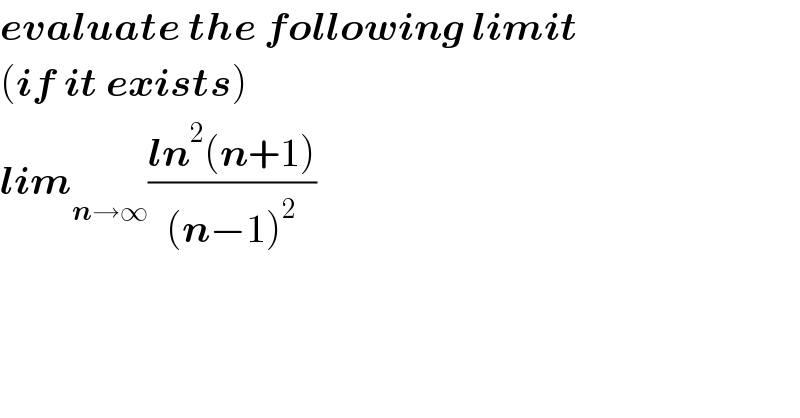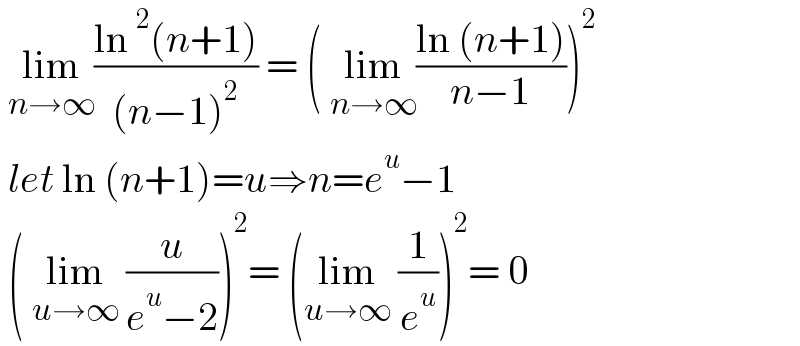Question Number 169514 by Giantyusuf last updated on 01/May/22

$$\boldsymbol{{evaluate}}\:\boldsymbol{{the}}\:\boldsymbol{{following}}\:\boldsymbol{{limit}} \\ $$$$\left(\boldsymbol{{if}}\:\boldsymbol{{it}}\:\boldsymbol{{exists}}\right) \\ $$$$\boldsymbol{{lim}}_{\boldsymbol{{n}}\rightarrow\infty} \frac{\boldsymbol{{ln}}^{\mathrm{2}} \left(\boldsymbol{{n}}+\mathrm{1}\right)}{\left(\boldsymbol{{n}}−\mathrm{1}\right)^{\mathrm{2}} } \\ $$
Commented by Giantyusuf last updated on 01/May/22

$$\boldsymbol{{your}}\:\boldsymbol{{solution}}? \\ $$
Commented by greougoury555 last updated on 02/May/22

$$\:\underset{{n}\rightarrow\infty} {\mathrm{lim}}\frac{\mathrm{ln}\:^{\mathrm{2}} \left({n}+\mathrm{1}\right)}{\left({n}−\mathrm{1}\right)^{\mathrm{2}} }\:=\:\left(\:\underset{{n}\rightarrow\infty} {\mathrm{lim}}\frac{\mathrm{ln}\:\left({n}+\mathrm{1}\right)}{{n}−\mathrm{1}}\right)^{\mathrm{2}} \\ $$$$\:{let}\:\mathrm{ln}\:\left({n}+\mathrm{1}\right)={u}\Rightarrow{n}={e}^{{u}} −\mathrm{1} \\ $$$$\:\left(\:\underset{{u}\rightarrow\infty} {\mathrm{lim}}\:\frac{{u}}{{e}^{{u}} −\mathrm{2}}\right)^{\mathrm{2}} =\:\left(\underset{{u}\rightarrow\infty} {\mathrm{lim}}\:\frac{\mathrm{1}}{{e}^{{u}} }\right)^{\mathrm{2}} =\:\mathrm{0} \\ $$
Answered by Mathspace last updated on 01/May/22

$$={lim}_{{n}\rightarrow+\infty} \left(\frac{{ln}\left({n}\right)}{{n}}\right)^{\mathrm{2}} =\mathrm{0} \\ $$
